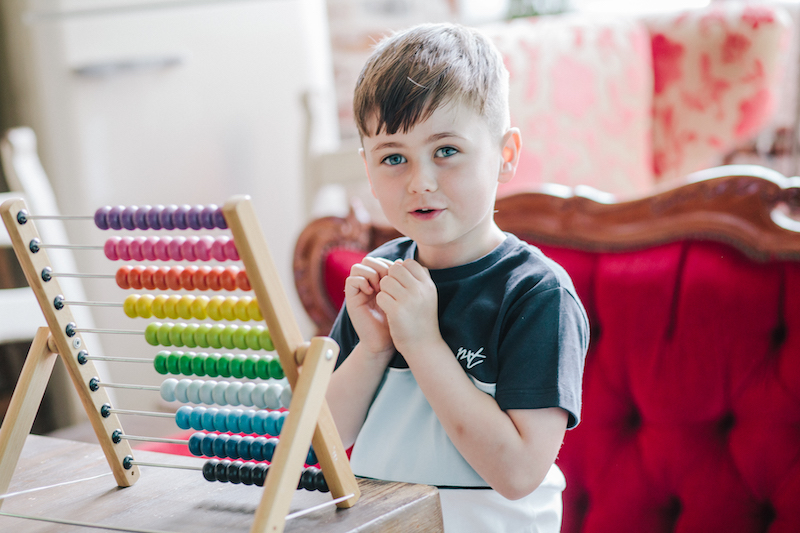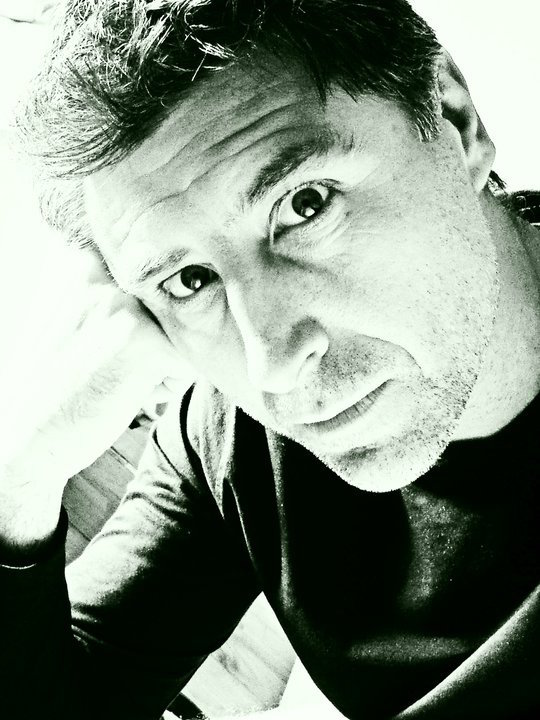Darren Hughes tells his story…
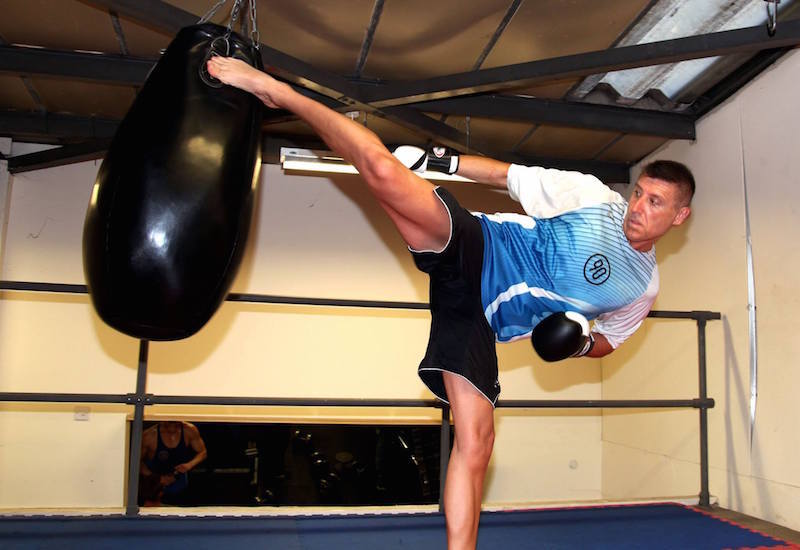
Darren Hughes started boxing at the age of 11 and became the Amateur Boxing Association Champion by the age of 13, going on to become the British, European and World Karate Champion. What the majority of people don’t know about Darren is as a toddler he suffered third degree burns to over 50% of his body and was hospitalised for a long period of time, nearly losing his life twice.
As a result of his injuries, as a small boy, he was unable to stand up straight due to the skin being tight across his chest and arms, and he was in and out of hospital until he was 21 years old. He still has regular appointments with his consultant to this day.
Here Darren tells his story for the first time…
- How old were you when you sustained your injury?
I was around 19 months old and I was at home with both my parents. I was apparently a very energetic child, walking and running around – into everything!
- How did the accident happen?
As far as I’m aware, as both my parents still won’t talk about the accident, I reached up to the work surface in the kitchen and poured a teapot of boiling water all over me.
- Aside from the treatment itself, what was the hardest thing about spending so much time in hospital at such a young age?
I was so young and in the 1970’s hospitals were big and lonely places, especially for a small child. I missed my Mum and Dad and I was extremely scared at the thought of the upcoming procedures I had to go through. I would go into hospital on a Monday but the operations wouldn’t take place until Wednesday, for some reason, so the feeling of apprehension was terrible. Hospitals these days are much more geared towards patient care.
I had skin graft procedures for over 13 years of my life, which involved 15 surgical procedures. When I was a teenager they started to use tissue expanders which made a huge difference as this stretched normal skin which they then used in my operations.
- How did it impact your relationships with friends and family?
My family have always been extremely supportive and my friends at school were nice. I was bullied at school as I looked different to everyone else and bullying wasn’t managed in the same way it is now. I had to deal with all of it myself and had zero support from the school. However, the friends I did have accepted my injuries, as a child once they accept your differences they don’t see them anymore.
- What has been the biggest lesson you have learnt about yourself?
It has taught me to be a survivor and has given me the drive to succeed. Obviously going through all the surgical procedures at such a young age I was enduring more pain than the majority of other children ever experience, but it’s made me the person I am today.
People talk about bad days, but I now look upon these as character building. Nothing can be as bad as what I’ve already been through.
- What do you think it is about sport which has been so transformative and helpful for you and your recovery?
For me, sport gave me an outlet, it gave me the chance to prove that I wasn’t different to anyone else – actually it gave me the drive to be faster and stronger than everyone else. I would do everything I could to achieve that. Most of the way through my childhood the hospital advised me to to not do any physical activity and to lie still in bed, however I ignored this and took part in heptathlons and pentathlons. I then got involved in boxing which allowed me to release some aggression in a controlled environment, it was then that combat became the rest of my life.
- Music has also been an important part of your journey. If you could meet with one music band/idol, who would it be?
If it was a band it would have to be the Beatles – I believe they have influenced all the music around today. My music taste is extremely eclectic – I love music – there is no musical genre I don’t like, from Rock to Drum & Base. Elvis Presley would be the artist I would have loved to meet, he had such an interesting life and it would have been great to hear all about it.
- Have you met any other burn survivors through the course of your treatment? Does it help to talk to other people about their experiences?
This is going to sound strange but I haven’t met any other burn survivors. It’s only in the last few months that I have started talking to the outside world about my injuries and found that charities like the Children’s Burns Trust existed. I didn’t have any support services to turn to when I was a child and I’m so pleased that there are charities and professionals available to burn survivors today. I haven’t talked to any counsellors or specialists; the person I have to thank for helping me through is my amazing wife. She has to take all the credit, she’s such an amazing and supportive women and has propelled me into talking to others about my story.
I also have two wonderful children who don’t see my burn injuries and are just so accepting, I honestly couldn’t be luckier.
During my life I’ve been extremely guarded and I’ve hidden away a my achievements – all my combat trophies are gathering dust in the loft – and it’s only now, with the help of my family, that I feel it’s time to talk about my story and I’m really looking forward to it. Even the gym that I’ve trained at for years didn’t now about my burns until recently.
- You’ve become a motivational speaker; how do people respond to your inspirational story?
I’m very lucky, I’ve had some great responses so far. Everyone is interested to hear my story and journey. The story I tell is of a small child moving forward every day, when life knocked me down I made sure I landed on my back so I could look up!
There does seem to be lots of requests to see me kick and punch – the world loves a fighter apparently!
- If you could give one message, or piece of advice, to other burn survivors what would it be?
Quite simply – never give up and always strive to achieve. You’re no different to anyone else. What doesn’t kill you makes you stronger and the wisest people in the world are those that have been through adversity. It gives you more of an understanding about life and allows you to identify with other people.
Thank you to Darren for taking part in this interview and for sharing his inspirational story. Darren can be contacted on Darrenhughes2370@yahoo.co.uk Tel-07906-826-920
Related content
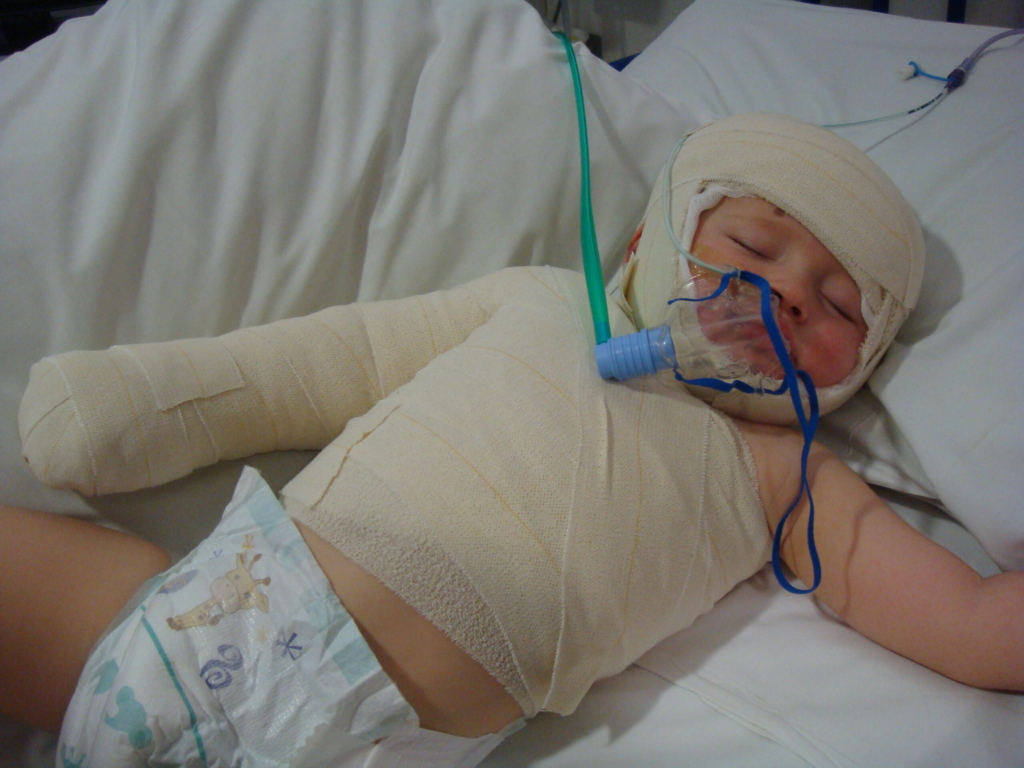
Donate to us
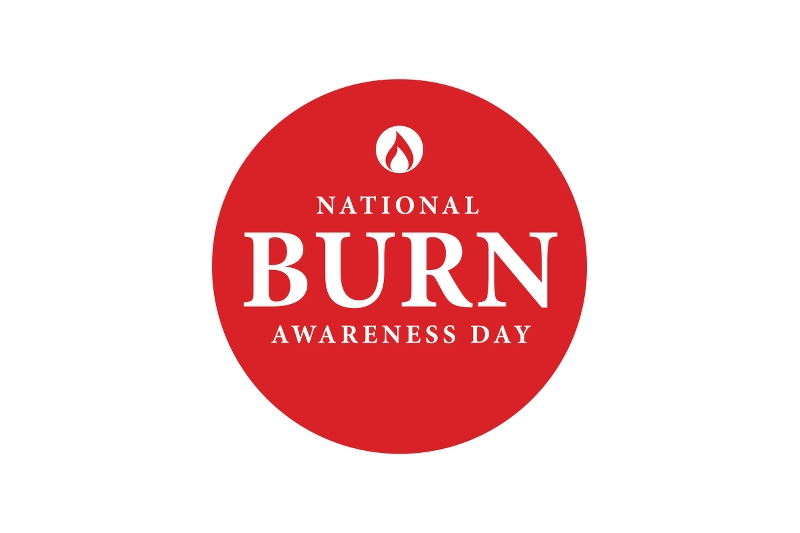
Campaigns
